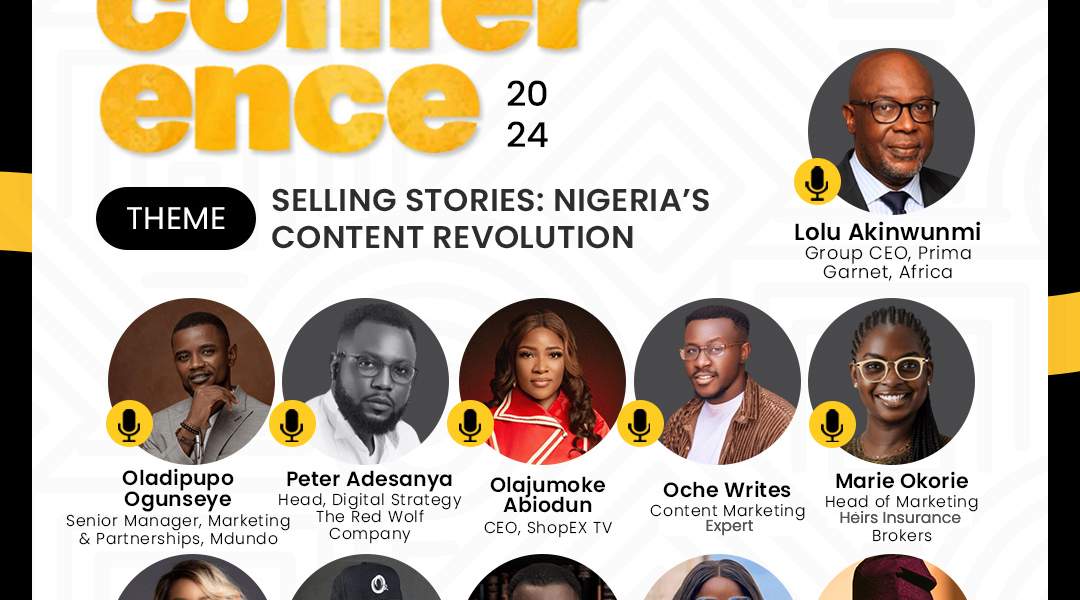Influencer marketing which was once hailed as a potent strategy now faces skepticism and doubt, with marketing experts asserting that while influencers have proven valuable for enhancing brand recognition, exposure, and sales, the oversaturation and commodification of the influencer landscape have led to diminishing returns.
Contrary to some popular data, Sabastian Enges, a prominent business performance coach, foresees a decline in the term “influencer.”
Predicting that the rapid evolution from celebrity influencers to micro and nano influencers will erode the term’s distinctiveness, rendering it meaningless, Enges contended that the influx of influencers will dilute the impact, leading to a loss of the term’s value.
He said “You know what number one position Gen Z wants in the world right now? Influencer. That word is going to die within the next 1-2 years. You will surprisingly not hear the word anymore, it’s going to die. Why? Because we went from celebrity influencer to macro influencer, to micro influencer, then to nano influencer. Now everyone is an influencer. And if everyone is now an influencer, guess what, no one is. You make money one of two ways, by doing what others won’t, or by doing what others can’t.”
While Sebastian Enges’ prediction raises questions, industry observers and consumers offer diverse perspectives on influencer marketing’s trajectory.
Countering Enges’ viewpoint, Kiya Davelaar an entrepreneur, noted that while oversaturation may lessen appeal, it doesn’t necessarily spell the end for influencer marketing.
However, this growing skepticism towards influencer marketing is driven by a significant shift in consumer sentiment.
According to a recent survey conducted by EnTribe, which involved over a thousand consumers, a striking 81% of respondents claimed that their purchasing decisions remained untouched by influencer endorsements. Furthermore, 51% revealed that they now overlook influencer posts while scrolling through their social media feeds.
One major contributor to this decline is the perceived lack of authenticity. As influencers transformed their personal accounts into revenue streams, the focus shifted towards financial gains. Unexpectedly, this tension between promoting products for monetary reward and maintaining genuine trust has led to skepticism among consumers. And despite efforts to present endorsements as personal recommendations, viewers are increasingly recognizing these promotions as paid advertisements.
Jon Giurleo pointed out “I’ve been expressing this viewpoint for a while now. The era of influencers is not a permanent one. As a member of Generation Z, I believe that many young people aspire to attain influence, power, and financial gain with minimal effort, often through activities like creating dance videos, silly skit vids etc. Ads and promotional videos on social media will not go away but the craze around it will. Instead of focusing on cultivating more influencers, our attention should be directed towards actively contributing to the betterment of our society and building stuff that matters.”
Arguing that influencer culture is deeply ingrained in modern life and unlikely to fade, Rachel Kennedy, Ms. Miami International 2023 shared that literally, everyone is already an influencer.
“This will never go away,” she shared in the Instagram comment.
“In Italy in the 1600s musicians would pay to allow their music to be played in theaters, then pay people to come and clap in the front row of the audience to get more attention. Pretty soon people would start to come and see the shows until they were sold out and the musicians would be famous and be making very real money. It’s absurd to say this is going away. It’s happening every day, millions of times per day, in many ways. People will always be influenced. There will always be people who do it professionally. People who write ads and sales page copy, and books are influencers,” she added.
Also countering Enges’ assertion, hunterhanx believes that influence is not going to die anytime soon.
He said “Influencers are just getting started, and learning how to make real money rather than for exchange services. Influencers are amazing sales people. If anything is dying, it’s celebrities. Short form entertainment by your favorite creator/ influencer is here to stay for a bit.”
While skepticism abounds, some maintain that influencers are just beginning to understand their potential for revenue generation. Smaller influencers are emerging as a powerful alternative due to their authenticity and affordability. TikTok boasts exceptional engagement rates, bolstering the platform’s influencer marketing potential, while Instagram grapples with declining engagement rates.
The concept of influencer marketing originally stemmed from the realm of blogging, where individuals shared insights, advice, and personal experiences to build trust within online communities. Over time, technology transformed these content creators into influential figures, and brands recognized the potential to tap into their loyal followings. However, the once-authentic nature of influencer content has morphed into a monetized venture, raising concerns about authenticity, credibility, and sustainability.
The rise of micro-influencers, individuals with smaller but often more engaged followings, is emerging as a potential solution to the authenticity dilemma. Unlike celebrity influencers whose online presence is heavily influenced by financial incentives, micro-influencers often balance their online activities with traditional professions. As a result, their content appears less contrived and more relatable, leading to greater consumer trust.
Additionally, the rapid pace of internet trends and the need to frequently churn out content for quick consumption have contributed to overconsumption and unsustainable habits among consumers. The pressure to keep up with viral trends has led to concerns about ethical consumption and environmental sustainability, a facet not to be overlooked.
Nonetheless, the influencer marketing industry continues to grow. The Influencer Marketing Hub’s report indicates a $21.1 billion industry in 2023, a 29% increase from the previous year. TikTok’s exceptional engagement rates for even larger influencers contribute to the platform’s sustained influencer marketing ROI, while Instagram’s engagement rates decline despite its popularity.
Smaller influencers are now favored by brands due to their affordability and higher engagement rates. A majority of marketers opt for small creators and influencers, recognizing the value of authentic and cost-effective endorsements.
Looking ahead, balancing authenticity, trust, and sustainable practices will determine whether the influencer marketing industry can regain its relevance in the ever-evolving landscape of consumer preferences and expectations.




